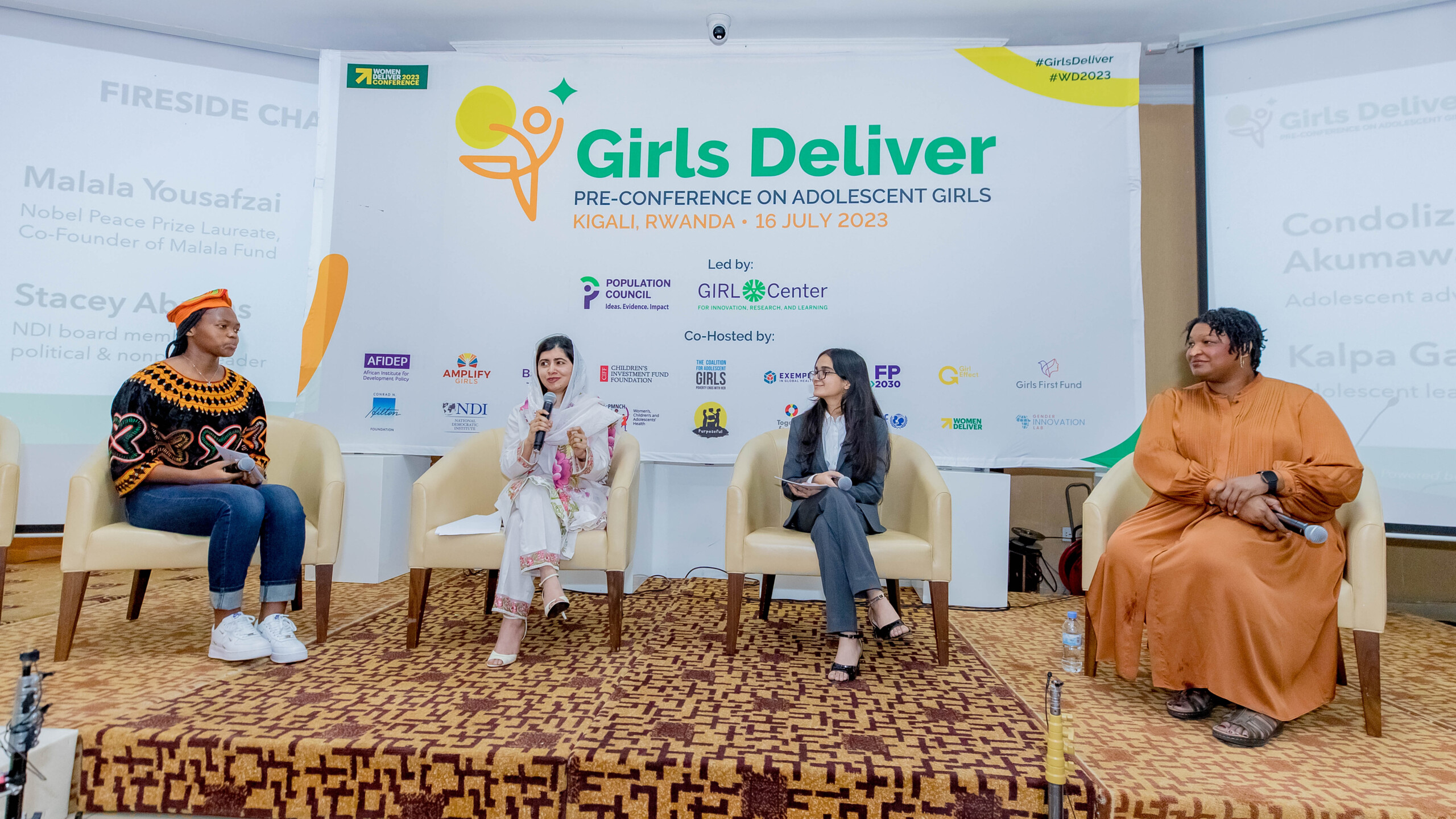
Convening Diverse Stakeholders to Integrate Action for Adolescent Girls
The Population Council's GIRL Center kicked off Women Deliver 2023 with intention and action as it led the first ever Girls Deliver Pre-Conference on Adolescent Girls on July 16, 2023, in partnership with 18 co-hosts. We welcomed 250 participants, across an array of sectors involved in supporting adolescent girls, for an inspiring day of evidence-based learning and action. Practitioners, donors, activists, researchers, policy makers, and leaders of grassroots and community organizations joined 40 adolescents and 50 youth participants for a diverse group of voices and perspectives.
Today, there are 1.8 billion adolescents and youth around the world – the largest in history. Yet the adolescents and youth that represent the world's future – especially girls and women – continue to face major global challenges, and the ecosystem of stakeholders supporting adolescents and youth remains fragmented. As the world confronts the intertwined crises of climate change and rising social and economic inequality, Girls Deliver was a pivotal moment to create a dedicated space for multi-sectoral conversations elevating voices of adolescents and other stakeholders from low- and middle-income countries (LMICs), foster solidarity within the community, and drive evidence-based solutions. Multisectoral plenary sessions opened Girls Deliver, featuring powerful voices including Stacey Abrams, Vanessa Nakate, and Malala Yousafzai together with younger advocates like Condolizzarice Akumawah from Cameroon and Kalpa Garg from India.
Following the inspiring conversation between three generations of feminists, participants collaborated on 13 different thematic roundtable discussions led by our co-hosts exploring pressing issues facing adolescent girls worldwide, grounded in data and evidence. Themes included: adolescent mothers, adolescent sexual and reproductive health and rights, agency, building girls' political power, economic empowerment, education, gender-based violence in adolescence, girls in humanitarian settings, girls in the digital space, girls-led climate action, government integration, holistic approach to adolescent girls' health, and meaningful adolescent and girl engagement.
Together, we worked towards cultivating a multidimensional approach to adolescent well-being, co-creating next steps to build an integrated feminist ecosystem for adolescents, and catalyzing action to advance gender equality.
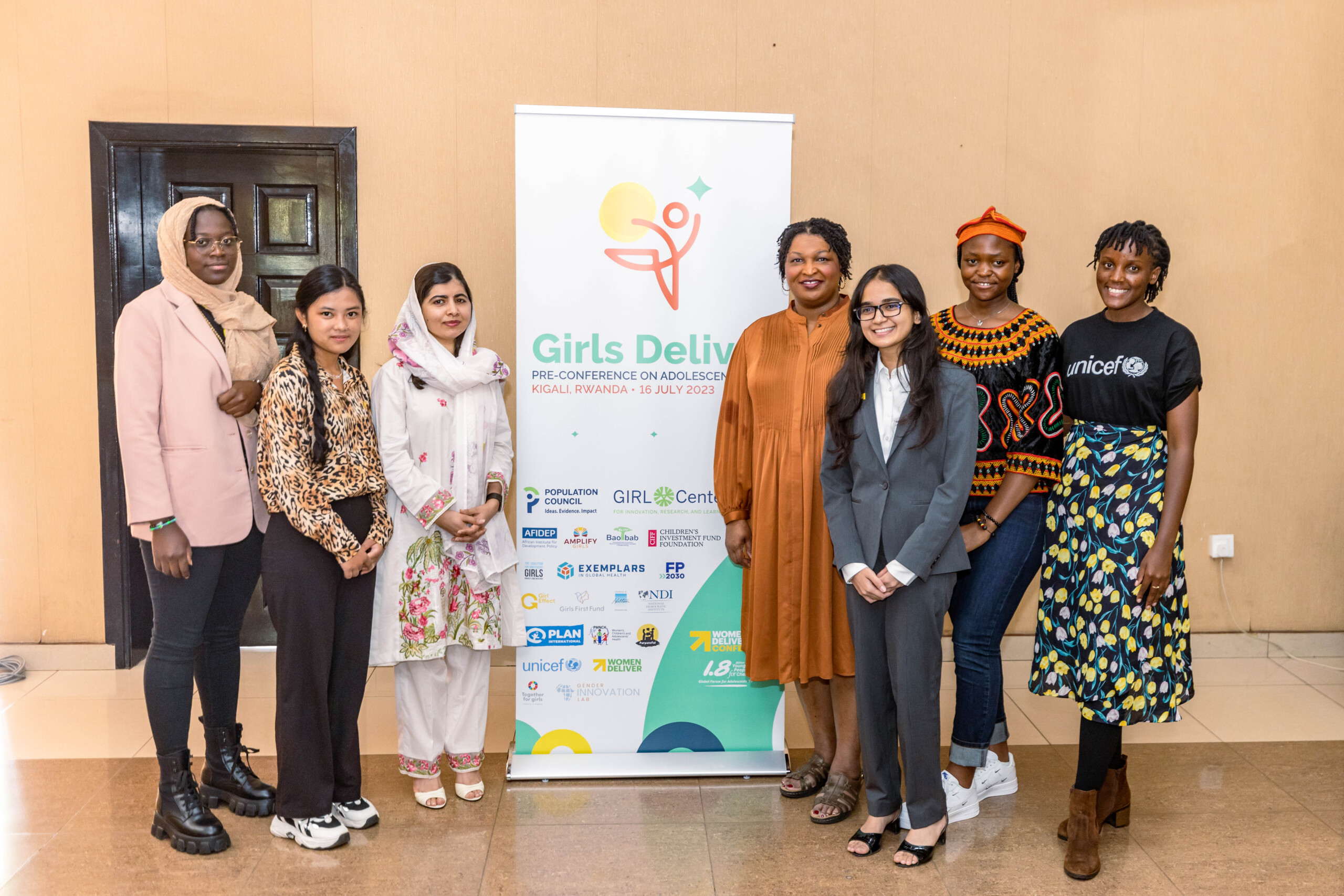
From L-R: Divina Maloum, Lalita Tamang, Malala Yousafzai, Stacey Abrams, Kalpa Garg, Condolizzarice Akumawah, and Vanessa Nakate meet ahead of starting the day with Girls Deliver.
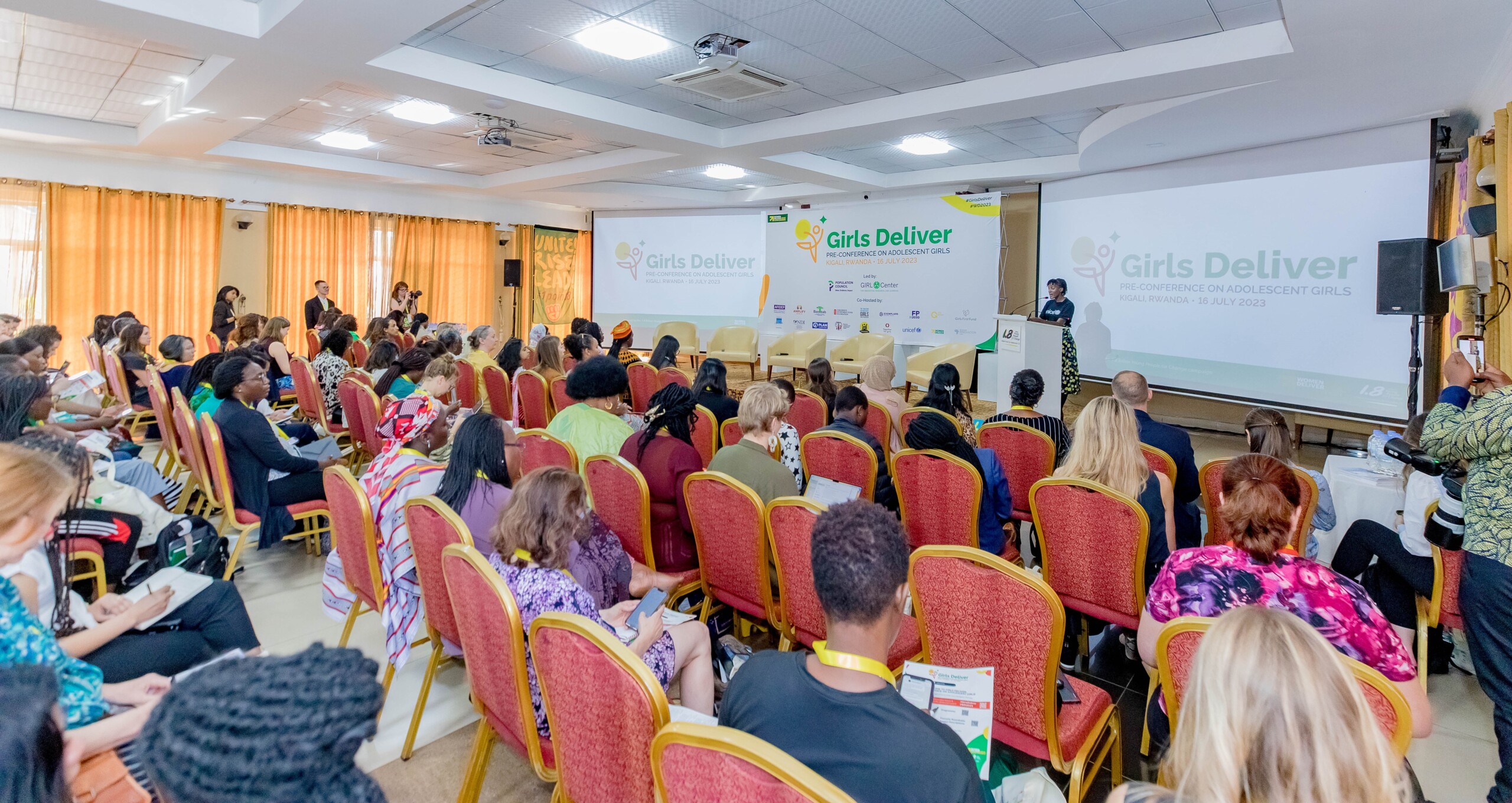
Vanessa Nakate provides the keynote address to open the Girls Deliver Pre-Conference.
Key Calls to Action
Unite for action. Delegates called for unity among the many different types of actors that are working to support adolescent girls worldwide – from researchers, advocacy groups, program implementers, to policymakers, and more. They acknowledged the strength and power of a more integrated ecosystem to tackle the major global issues facing adolescent girls, such as the climate crises and rising social and economic inequality, leveraging the synergies between each actor’s expertise and perspectives.
Enhance holistic approaches to girls’ lives. The daily lives of adolescent girls are not centered around single, individual issues, whether it be education, sexual and reproductive health and rights, economic empowerment, or climate change. Rather, girls’ lives are shaped by the complex interconnections between these pressing issues. In order to support adolescent girls as a whole, the ecosystem of actors must move out of working in thematic silos to take an integrated approach with adolescents at the center.
Drive action with data and evidence. The discussions indicated a need to better integrate data and evidence into multisectoral conversations, ensuring that quality, accessible data on adolescents reaches those that need it most to improve the lives of adolescent girls. Equally important is to utilize the data and evidence to shape resource allocation as well as program and policy implementation to impact areas and populations of greatest need with approaches proven to be effective.
Increase investments in adolescent programs and adolescent activists. Many participants, especially adolescent speakers, emphasized that adolescent programs, adolescent girl-led programs, and adolescent activists remain under resourced. Delegates urged governments, donors and the private sector to urgently invest resources in integrated, interdisciplinary work that supports the holistic needs of adolescent girls.
Create space for girls to lead. The integrated ecosystem for adolescent girls requires a large constituency of adolescent girls to meaningfully participate and lead – not just on their own, but building cohesion with all other stakeholders. Girls Deliver’s convening of over 90 adolescents and youth was a great start, and moving forward, the ecosystem of actors will need to make sure that adolescent girls continue to be included in conversations and creation of solutions as stakeholders and leaders.
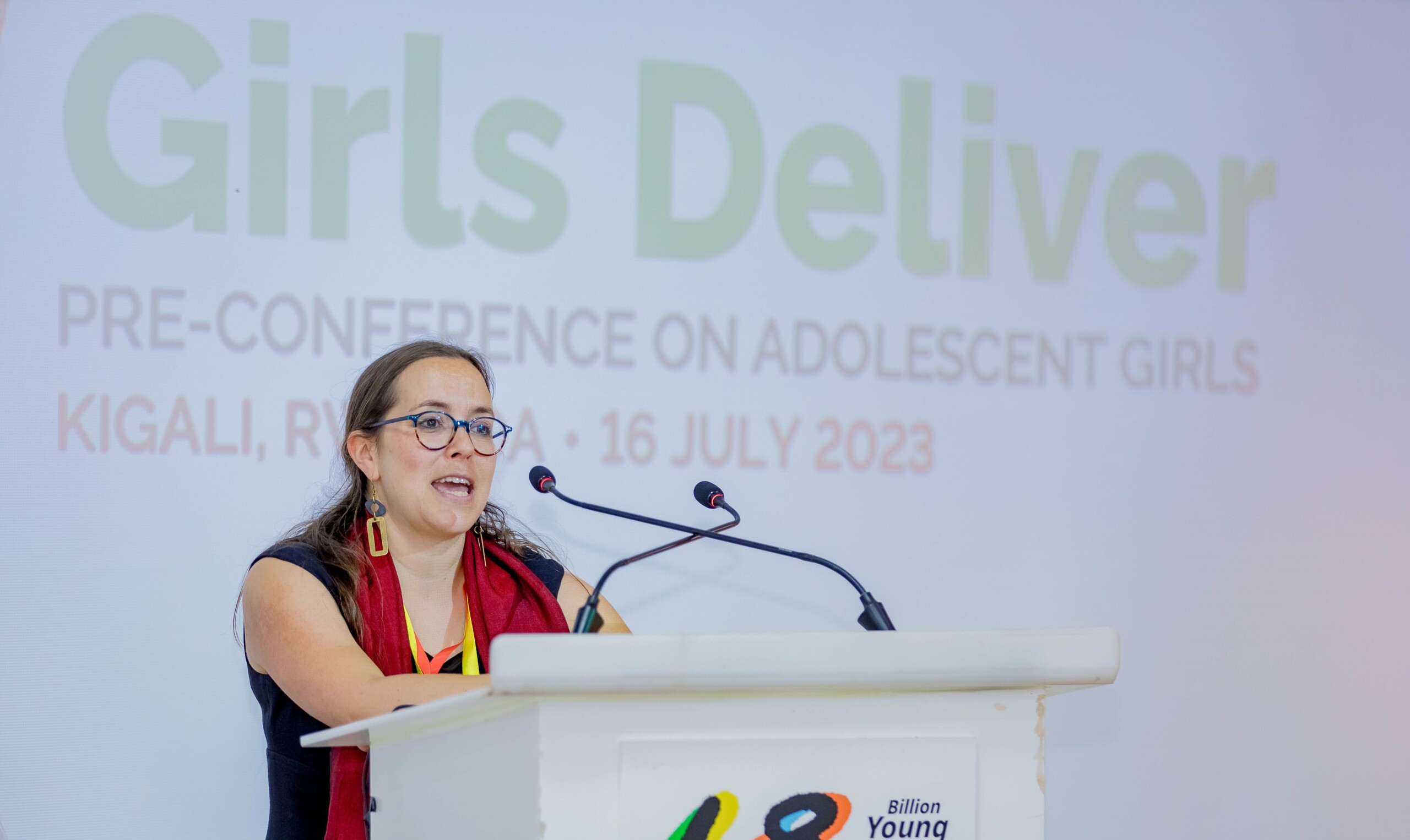
GIRL Center Director, Karen Austrian provides closing remarks.
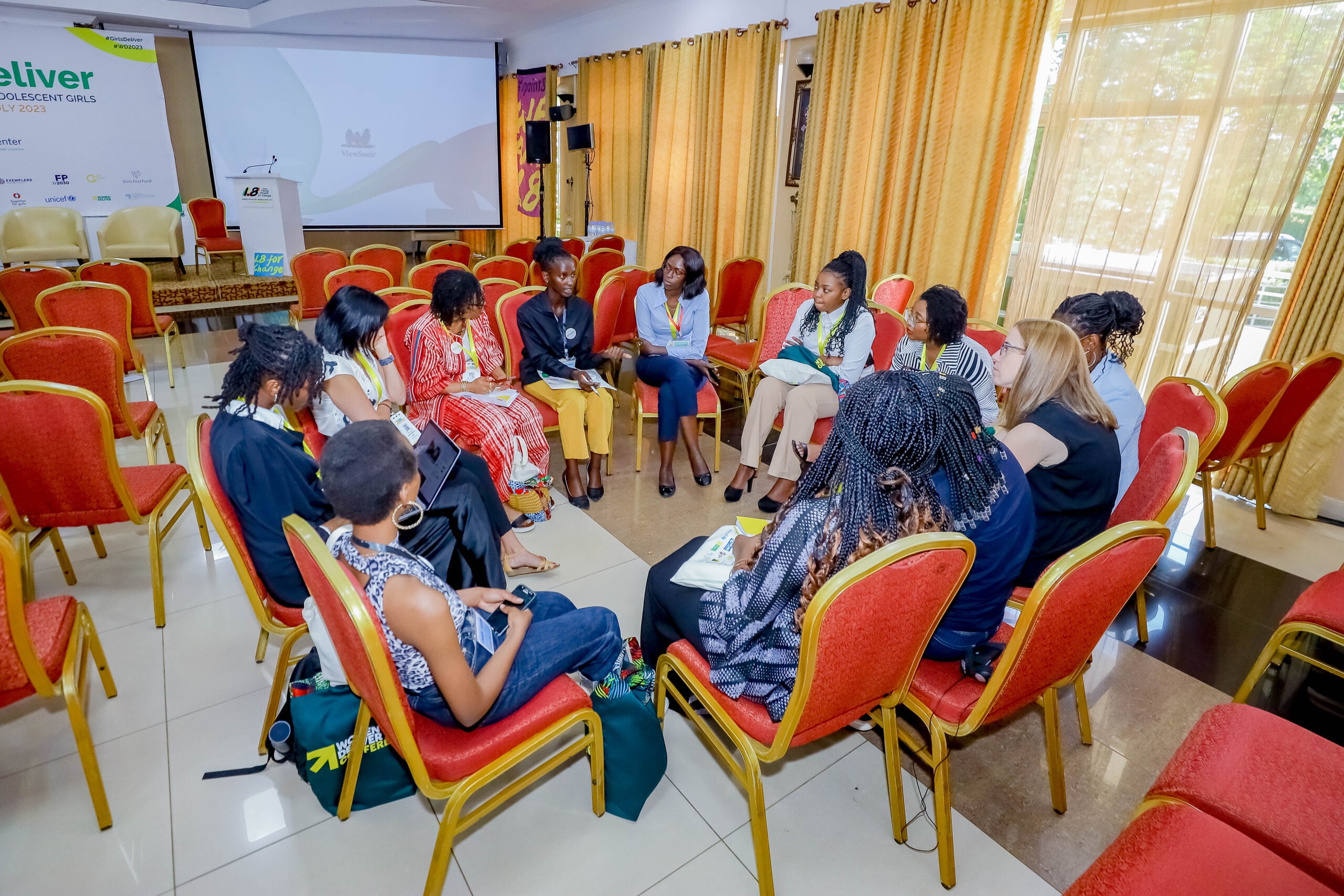
Participants engage in small group discussions.
Continuing the Momentum
We are inspired by the passion and commitment toward building an integrated, feminist ecosystem for the rising generation of adolescent girls. Girls made sure their voices were heard, urging all those present to believe in, include, and co-create with them.
However, solidarity and collaboration cannot stop with the conclusion of the Girls Deliver Pre-Conference and the Women Deliver Conference in Kigali. The drive to continue the momentum was evident among all stakeholders – to build a coalition of action for adolescent girls that continues in the spirit of an integrated ecosystem, centering on girls and grounded in data and evidence. Watch this space for future developments on how the GIRL Center is responding to the call for collective action with Girls Deliver partners and beyond.
Contact us at the GIRL Center to collaborate and innovate for adolescent girls! Be sure to sign up for our newsletter and follow us on Twitter.
